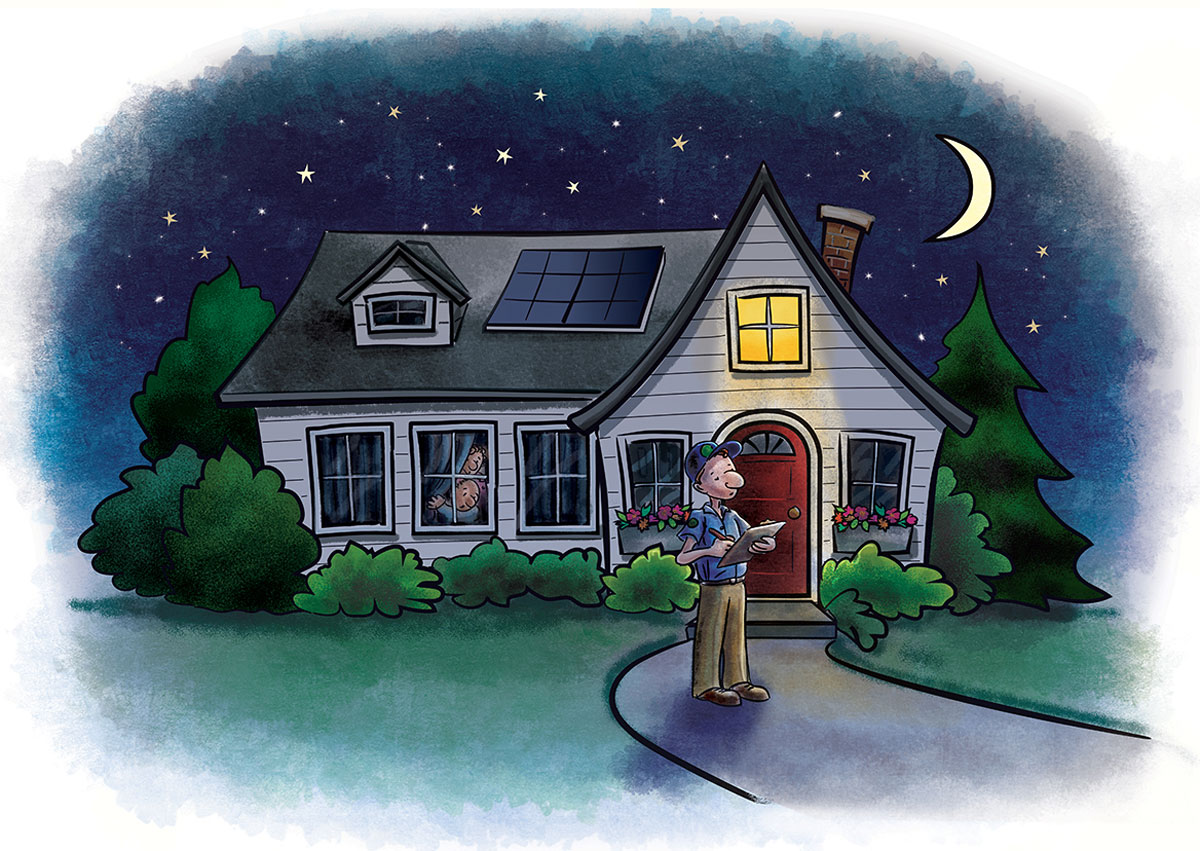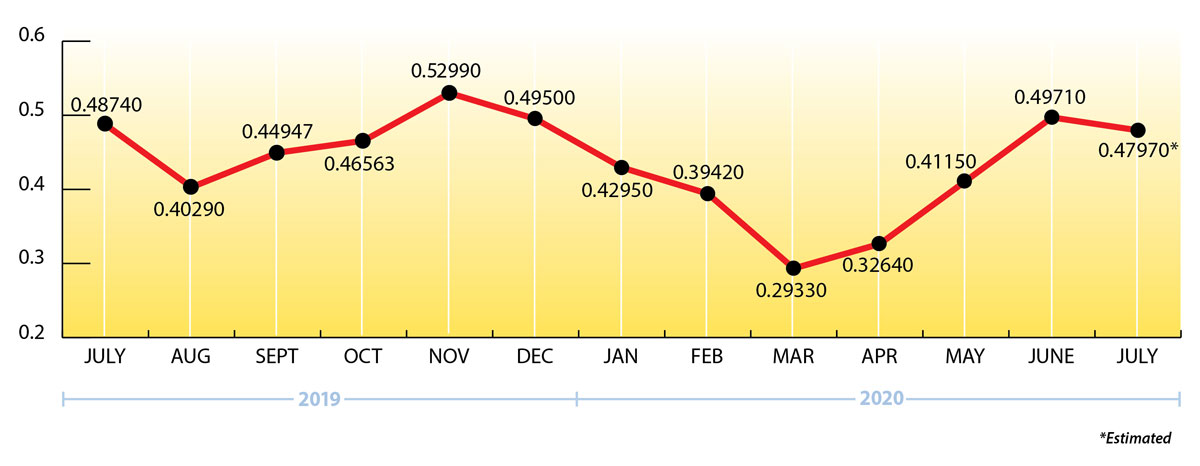Life in 2035?
 Life Under the Global Warming Solutions Act: A Cautionary Tale
Life Under the Global Warming Solutions Act: A Cautionary Tale
July 18, 2035. It’s a beautiful Wednesday morning. The sea and the sky, everything, is a brilliant blue.
My wife and I can’t believe our good fortune. We drew the combustion-engine state lottery number for today, paid the daily license fee of $3,000 (to help fund the Climate & Sustainable Development Council), filled our old convertible for $600 at the only state gas station, and now we’re on our way. The winding road northeast, along the New Hampshire coastline, unfolds before us like a gold-colored ribbon.
We’re not the only ones on the road. The “electric-vehicle (EV) rights” law gives everyone the right to own (thru subsidies) or ride-share an electric vehicle, so it isn’t just the wealthy who drive electric cars anymore. A portion of the entitlement funding from new taxes also goes to third-world countries as reparation for lithium mining and battery/solar panel disposal dumps.
There is nothing like the sound of a sports car engine, so rare to hear these days. We know we may never get the chance to do this again.
It takes our mind off how cold it was last winter.
To relieve excessive grid pressure, the Global Warming Solutions Act (archaic reference “VT H.688”, adopted by New Hampshire in 2023) allows homeowners to heat only one floor at a time above 45 degrees between 6 am and 6 pm. And while there are no limitations on candlelight, the “one occupied room = one 10W LED” restriction holds true for electric light. Supposedly there are ways to get around these laws, but it’s nearly impossible to fool the state-installed home monitoring systems or the neighborhood “environmental hosts” who patrol on foot, making monthly reports in exchange for energy credits.
Nearly everyone has joined a class-action lawsuit to sue the state for failing to meet mandatory emissions reductions targets. The statute was amended 12 years ago from 80 percent reductions in greenhouse gas emissions by 2050 to 90 percent reductions in greenhouse gas emissions by 2035.
But taxes are high, there are few jobs, and the state is bankrupt, so it’s unlikely anyone will ever see a settlement.
I know it’s considered wrong to use this expression, but “Thank God” for propane.
Propane powers our electric generator to supplement our federally mandated solar panel system and it kicks-in during the rolling or unexpected black-outs, which happen endlessly. Our propane consumption is monitored and heavily regulated (taxed), but when needed, it provides heat, helps us cook, dry clothes, and even take a weekly allowed five-minute hot shower. Wouldn’t you agree that a hot shower can make you feel pampered?
It’s a different world, sadly.
But today is a top-shelf day. As we enter the historic seacoast town of Portsmouth, we are reminded that Paul Revere once rode here too, (during the winter of 1774) to warn fellow patriots that British soldiers were headed up from Boston to seize their gunpowder. It’s more civilized today; educated people can vote to defend their way of life. Read more here on what may be headed your way soon.
What’s Happening with Propane Prices?
The summer doldrums have hit and Belvieu prices are drifting up and down on either side of 50 cents per gallon.
Propane Price Chart

EIA Weekly Inventory Numbers
Total US propane inventories exceeded industry expectations by nearly 50 percent, showing a build of 3.525 mmbbls. for the week ending July 10, 2020. That brings national inventory levels to 80.348 mmbbls., about 10 percent ahead of last year and approximately 10 percent above the 5-year average.
PADD 2 (Midwest/Conway) inventories showed a modest build of .812 mmbbls. They currently stand at 20.088 mmbbls., roughly 12 percent behind last year.
PADD 3 (Gulf Coast/Belvieu) inventories showed a substantial build of 2.17 mmbbls. They currently stand at 48.179 mmbbls., about 13 percent ahead of last year.
The Skinny
Inevitably, technological advances will solve challenges and make renewable energy the primary source of electric generation. Brilliant minds will develop better batteries, without minerals from impoverished nations. We won’t always import batteries from communist countries. Toxic disposal concerns will be somewhat mitigated if the useful life span of electric components increases a hundredfold.
But it’s disingenuous, when you look “under the hood”, to think that every aspect of current electrification initiatives out there now are truly environmentally responsible. They just aren’t.
Onerous taxation and penalties may help relieve some existential guilt, but they may not reduce global warming much if all that the “developed” countries accomplish is to send themselves back to the stone-age while “emerging” countries, with the highest population, reap the multiple economic benefits of low-cost, carbon-based fuels.
Shouldn’t there be a middle road?
Whatever the future may hold, propane is a clean, economical fuel source with versatile applications. Going forward, energy contributions from propane will make essential, major contributions towards sustainable global electrification goals.
Get Stephen's insights on propane delivered to your inbox every month.
Sign up for our monthly newsletter here.
For more frequent updates and industry news, join us on LinkedIn.
NOTE: The views and opinions expressed herein are solely those of the author, unless attributed to a third-party source, and do not necessarily reflect the views of Ray Energy Corp, its affiliates, or its employees. The information set forth herein has been obtained or derived from sources believed by the author to be reliable. However, the author does not make any representation or warranty, express or implied, as to the information’s accuracy or completeness, nor does the author recommend that the attached information serve as the basis of any buying decision and it has been provided to you solely for informational purposes. © 2011-2020 Ray Energy Corp. All rights reserved. Any reproduction, representation, adaptation, translation, and/or transformation, in whole or in part by whatsoever process, of this site or of one or several of its components, is forbidden without the express written authorization from Ray Energy Corp.

